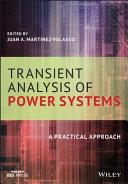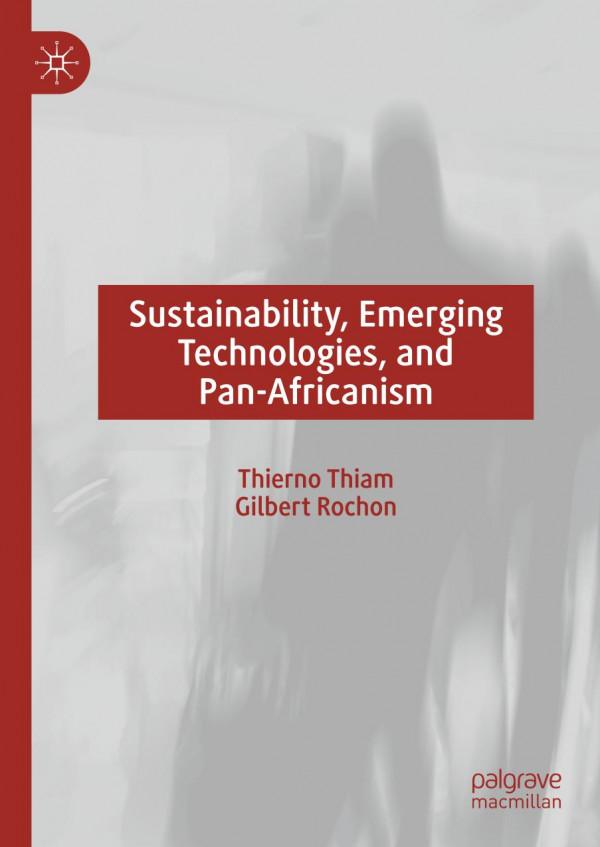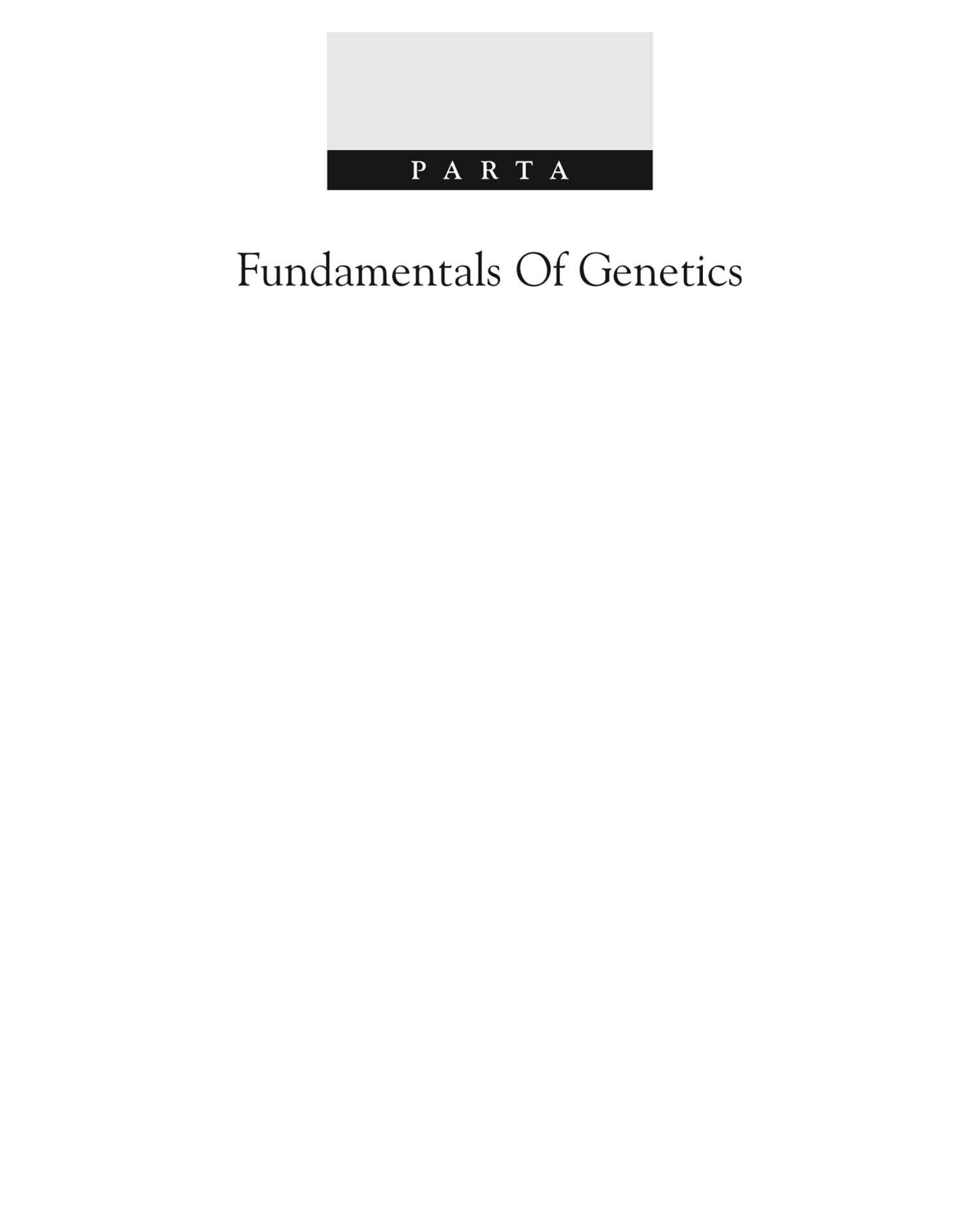HUMAN REPRODUCTIVE GENETICS
EMERGINGTECHNOLOGIESAND CLINICALAPPLICATIONS
Editedby
JuanA.Garcı´a-Velasco
ReyJuanCarlosUniversity,Madrid,Spain
IVIRMAMadrid,Madrid,Spain
EmreSeli
YaleUniversity,NewHaven,CT,UnitedStates ChiefScientificOfficer,IVIRMAGlobal,BaskingRidge,NJ,UnitedStates
AcademicPressisanimprintofElsevier 125LondonWall,LondonEC2Y5AS,UnitedKingdom 525BStreet,Suite1650,SanDiego,CA92101,UnitedStates 50HampshireStreet,5thFloor,Cambridge,MA02139,UnitedStates TheBoulevard,LangfordLane,Kidlington,OxfordOX51GB,UnitedKingdom
Copyright©2020ElsevierInc.Allrightsreserved.
Nopartofthispublicationmaybereproducedortransmittedinanyformorbyanymeans,electronicormechanical,includingphotocopying,recording,oranyinformationstorageandretrievalsystem,withoutpermissioninwritingfromthepublisher.Detailsonhow toseekpermission,furtherinformationaboutthePublisher’spermissionspoliciesandourarrangementswithorganizationssuchas theCopyrightClearanceCenterandtheCopyrightLicensingAgency,canbefoundatourwebsite: www.elsevier.com/permissions
ThisbookandtheindividualcontributionscontainedinitareprotectedundercopyrightbythePublisher(otherthanasmaybenoted herein).
Notices
Knowledgeandbestpracticeinthisfieldareconstantlychanging.Asnewresearchandexperiencebroadenourunderstanding, changesinresearchmethods,professionalpractices,ormedicaltreatmentmaybecomenecessary.
Practitionersandresearchersmustalwaysrelyontheirownexperienceandknowledgeinevaluatingandusinganyinformation, methods,compounds,orexperimentsdescribedherein.Inusingsuchinformationormethodstheyshouldbemindfuloftheirown safetyandthesafetyofothers,includingpartiesforwhomtheyhaveaprofessionalresponsibility.
Tothefullestextentofthelaw,neitherthePublishernortheauthors,contributors,oreditors,assumeanyliabilityforanyinjury and/ordamagetopersonsorpropertyasamatterofproductsliability,negligenceorotherwise,orfromanyuseoroperationofany methods,products,instructions,orideascontainedinthematerialherein.
BritishLibraryCataloguing-in-PublicationData
AcataloguerecordforthisbookisavailablefromtheBritishLibrary LibraryofCongressCataloging-in-PublicationData AcatalogrecordforthisbookisavailablefromtheLibraryofCongress
ISBN:978-0-12-816561-4
ForInformationonallAcademicPresspublications visitourwebsiteat https://www.elsevier.com/books-and-journals
Publisher: StacyMasucci
AcquisitionsEditor: TariBroderick
EditorialProjectManager: PatGonzalez
ProductionProjectManager: SwapnaSrinivasan
CoverDesigner: MilesHitchen
TypesetbyMPSLimited,Chennai,India
Listofcontributorsix
Abouttheeditorsxi
Prefacexiii
A
FUNDAMENTALSOF GENETICS
1.Basicgenetics:mitosis,meiosis, chromosomes,DNA,RNA,andbeyond
AMANDAN.KALLEN
Introduction3 References15
2.Identificationofgeneticcausesof gynecologicdisorders
ALEXANDERKOTLYARANDMARIAD.LALIOTI
Introduction17
TheHumanGenomeProject,Mendelianandcomplex geneticinheritance17
Differencebetweenmutationsandpolymorphisms18 Approachesforidentifyingthegeneticcauseofa disorder18
Summary28
References28
3.Cytogeneticstechniques
INMACULADACAMPOS-GALINDO
Introduction33
Karyogram,karyotype,andidiogram34 Mostfrequentkaryotypeabnormalities35 Heteromorphisms,polymorphisms,ornormal variants39
References44
4.Molecularbiologyapproachesutilizedin preimplantationgenetics:real-timePCR, microarrays,next-generationsequencing, karyomapping,andothers
ALMUDENADEVESA-PEIRO ´ ,JOSEFAMARI ´ ASA ´ NCHEZREYESANDPATRICIADIAZ-GIMENO
Theembryofactor:preimplantationgenetictesting techniquesforembryoselectionagainst chromosomalabnormalitiesandmonogenic disorders49
Theendometrialfactor:geneexpressiondiagnostictools toassessendometrialreceptivity60
Generalconclusion63
References64
Furtherreading67
5.Epigeneticsandimprintinginassisted reproduction
Introduction69
Molecularmechanismsofepigeneticregulation70 Epigeneticsofaging75 Aspecialaspectofepigenetics:imprinting78 Assistedreproductivetreatmentandtheepigenome79 Summaryandconclusions80 References81
Furtherreading86
B
CLINICALSCENARIOS
6.Thequestforgeneticsequencevariants conferringriskofendometriosis
SUN-WEIGUO
Introduction91
DIEGOMARINANDEMRESELI
Aprimerongeneticstudiesofcomplexdiseasesanda reviewofendometriosisgenetics94
Identificationofgenesand/orgeneticvariants: recombination,linkagedisequilibrium,and association98
Layersofcomplexity100
Conclusion103
Acknowledgment104
References104
7.Geneticsofpolycysticovariansyndrome
YVONNEV.LOUWERSANDJOOPS.E.LAVEN
Introduction111
Heritability112
Candidategenestudies112
Genome-wideassociationstudies114 Functionalstudies116
Conclusion119 References119
8.Malefactorinfertility:geneticand epigeneticaspects
BRENTM.HANSONANDJAMESM.HOTALING
Introduction123
Geneticaspectsofmaleinfertility126
Epigeneticaspectsofmaleinfertility132 Implications137 References138
9.Mitochondrialgenetics
ELPIDAFRAGOULI
Introduction143
Mitochondrialinheritanceandreplication144
Mitochondrialdiseases145
Mitochondriainoocytes146
Mitochondriainsperm148
Mitochondriainembryos149
Conclusion152 References153
10.Endometrialreceptivityandgenetics
NICKMACKLON
Introduction159
Geneticmarkersofendometrialfunction159
Beyondendometrialreceptivity162
Conclusionsandclinicalimplications168 References169
11.Geneticsofprematureovarian insufficiency
JOSESERNA,ELISAVARELAAND JUANA.GARCI ´ A-VELASCO
Introduction173
Prematureovarianinsufficiencyetiology174
Technicaladvances175
Geneticsoftheovarianreserve175
Folliculardevelopment177
Syndromicprematureovarianinsufficiency178
FragileXsyndrome181
Roleoftelomeresinprematureovarian insufficiency185
Futurediagnosisandtreatment187 References187 Furtherreading199
12.Prenataltesting
JOSHUAA.COPEL,KATHERINEKOHARI ANDAUDREYA.MERRIAM
Aneuploidyscreeningtests201
Diagnosticprenatalgenetictesting213
Availabletestingmodalities216 References219
13.Expandedcarrierscreeningin reproductivemedicine
JEFFREYS.DUNGAN
Principlesofcarrierscreening224
Historicperspectives224
Otheraspectsoftraditionalethnicity-based screening225
Universalscreening226
Roleofexpandedcarrierscreening226
Mutationscreeningversusgenesequencing229
Genotype phenotypecorrelations230
Determinationofresidualrisk230
Clinicalutilityofexpandedcarrierscreening231
Optionsforcarriercouples233
CarrierscreeningforX-linkeddisorders233
Counselingforconsanguineouscouples234
Counselingregardingvariantsofuncertain significance235
Gametedonors235
Ethicalargumentsinfavorofexpandedcarrier screening236
Practicalargumentsopposingexpandedcarrier screening236
Genesonexpandedcarrierscreeningpanelswith additionalimplications236
Identifyingindividualswithtwopathogenic variants237
Conclusion237
References238
HOWTOANALYZEANEMBRYO
14.Preimplantationgenetictestingfor monogenicdiseases
ANACERVEROANDJULIOMARTI ´ N
Introduction243
Indicationsforpreimplantationgenetictestingfor monogenicdiseases244
Technologiesandtestingmethods247
Simultaneousembryotestingforpreimplantationgenetic testingformonogenicdiseasesandpreimplantation genetictestingforaneuploidies250
Limitations251
Conclusion251
References252
15.Futuretechnologiesfor preimplantationgeneticapplications
NADAKUBIKOVAANDDAGANWELLS
Preimplantationgenetictesting255
Noninvasivepreimplantationgenetictesting256
Futureperspectivesinpreimplantationgenetictesting formonogenicdisease258
Preimplantationgenetictestingforpolygenic disease260
Whole-genomesequencingofthepreimplantation embryo260
Germlinegenomeediting261
Howfararewefrom(safe)clinicalapplicationof genomeediting?262
Ethicalconsiderationsforgermlinegenomeediting264 References266
REPRODUCTIVEGENETIC COUNSELING
16.Psychologicalaspectsofreproductive geneticscreeninganddiagnoses
DOROTHYA.GREENFELD
Reproductivegeneticscreening274
Preconceptioncarrierscreening274
Preimplantationgenetictestingformonogenic defects275
Preimplantationgenetictestingfor aneuploidy278
Theroleoftheinfertilitycounselor279
Conclusions280
References280
17.Bioethicsinhumanreproduction (humanreproductivegenetics)
HEIDIMERTESANDGUIDOPENNINGS
Introduction283
Preconceptiongenetictesting283
Preimplantationgenetictesting286
Preimplantationgeneticdiagnosis287
Preimplantationgenetictestingforaneuploidy screening288
Prenatalgenetictesting289
References291
18.Theroleofgeneticcounselinginthe infertilepatient
JOSEPPLA-VICTORI
Introduction295
Karyotypealterationsasacauseofinfertility298
Geneticcounselinginpreimplantationgenetic testing302
Monogeniccausesofinfertility303
Geneticcounselinginexpandedcarrier screening306
Communicationskillsingenetics307
References312
Index317
Basicgenetics:mitosis,meiosis, chromosomes,DNA,RNA,andbeyond
AmandaN.Kallen
DepartmentofObstetrics,GynecologyandReproductiveSciences,YaleSchoolofMedicine, NewHaven,CT,UnitedStates
Introduction
[Thehumangenomeis]ahistorybook:anarrativeofthejourneyofourspeciesthroughtime.It’sa shopmanual:anincrediblydetailedblueprintfor buildingeveryhumancell.Andit’satransformative textbookofmedicine:withinsightsthatwillgive healthcareprovidersimmensenewpowerstotreat, preventandcuredisease.Wearedelightedbywhat we’vealreadyseeninthesebooks.Butwearealso profoundlyhumbledbytheprivilegeofturningthe pagesthatdescribethemiracleofhumanlife.
FrancisCollins,RemarksatthePressConference AnnouncingSequencingandAnalysisoftheHuman Genome [1].
Thehumangenomecontainsfundamental codesbywhichheritableinformationisstored, translatedintofunctionaldata,andtransmitted fromonegenerationtothenext.Thecompletion oftheHumanGenomeProjectin2001,anambitiousinternationalundertakingwhichaimed tomapall3billionnucleotidesofthehuman genome,usheredinanewerainmedicine [2]. InformationgleanedfromtheHumanGenome Projecthasbeenusedtoaidourunderstanding ofhowthosegeneticcodescanbealteredand
inherited(asinthecaseofdisease-causing hereditarymutations),manipulated(forexample,asbiologicaltargetsfordrug-deliverysystems),orutilizedfordiagnosticpurposes(such astoallowforearlydetectionofdisease).To understandtheenormouspotentialforadvances inhumanhealthfromthisandotherdiscoveries,however,itisfirstnecessarytounderstandthebasicbuildingblocksofthehuman genome. DNA,RNA,andprotein
NucleicacidsandDNA:thebuildingblocks
Nucleicacidsarethebuildingblocksofliving organisms.Therearetwotypesofnucleicacids: deoxyribonucleicacid (DNA)and ribonucleicacid (RNA).ThediscoveryofDNAasthe“universal geneticmaterial”camein1953,whenJames WatsonandFrancisCrickfirstpresentedathreedimensional,doublehelicalmodelbasedon X-raycrystallographyobservationsbyRosalind Franklin [3].DNAprovidesthe“blueprint” whichallowsforcellularproductionofproteins,
anditspresenceallowsforthestablestorageof heritablegeneticinformation.
AstrandofDNAiscomposedofthousands ofrepeatingpairsof nucleotides,eachofwhich consistsofafive-carbonpentosesugar(deoxyribose),a phosphategroup,anda nitrogenbase. Thenitrogenbasesareclassifiedassingle-ring pyrimidines (mostcommonly,cytosineCand thymineT)anddouble-ring purines (mostcommonly,adenineAandguanineG).Toachieve thecharacteristicdoublehelixstructureofDNA, complementarynitrogenousbasepairs(Awith T,andGwithC)arelinkedbyhydrogenbonds; eachnitrogenousbaseisalsoattachedtoan outerpentosesugar-phosphatebackbone,with basespointinginwardtowardeachotherinthe chain.Nucleotidesarelinkedbyjoiningthe phosphategrouponthe50 carbonofonenucleotidetothe30 hydroxylgroupofthenext,with thecomplementarystrandrunningfromthe30 to50 direction,conferringpolaritytotheDNA strand.Althoughthenitrogenousbasesthemselvesarehydrophobicmolecules,theorientationofthesugar-phosphatebackboneresultsin awater-solublestructure [4].TheDNAdouble helixisalsostronglyacidic,withahighdensity ofnegativecharges.
MessengerRNA:theDNA protein intermediary
GeneticinformationcontainedinDNAisnot converteddirectlytoprotein;rather,thisprocess occursthroughasingle-strandedmessenger RNA(mRNA)intermediary,whichissynthesizedfromoneofthetwoDNAstrandsina doublehelix.UnlikeDNA,RNAutilizes ribose asitspentosesugar,andcontainsthebase uracil (U)insteadofthymine.Thus,forRNA,Apairs withU,andGpairswithC.Theprocessof RNAsynthesisfromaDNAtemplateisreferred toas transcription andiscatalyzedbythe enzyme RNApolymerase.Afterseparationofthe intertwinedDNAstrands,initiationoftranscriptionbyRNApolymerasebeginsonthe templatestrand ataspecificregulatorysequence
ofDNAknownasa promoter.Recognitionofthe promoterrequiresthepresenceof transcription factors,whichbindtoandrecognizethepromoter,aswellasproximaland/ordistalDNA sequencesknownas enhancers,toregulateRNA polymeraseactivity.Thepresenceofcell-and context-specifictranscriptionfactorsandenhancersallowsforcellstoexpressavarietyofgenes underspecificcircumstances.Oncetranscription isinitiated,additionofnucleotidescontinues ina50 to30 directionalongthegrowingRNA moleculeuntilanucleotide terminationsignalis reached.ThesequenceofbasesintheRNAmoleculeiscomplementarytotheDNAstrand, exceptthaturacilissubstitutedinplaceofthymine [5]
Aftertranscription,theeukaryoticmessengerRNAmoleculecontainsaproteincoding sequence,aswellasanupstream 50 -untranslatedregion andadownstream 30 -untranslated region.ThisnascentmRNAmolecule,known asthe primarytranscript,undergoesfurtherprocessingpriortotransportoutofthenucleus, includingadditionofa 50 cap (ofGTPresidues) and polyadenylation [oradditionofa poly(A) tail],whichisrequiredfortranslation.Upon additionofthe50 capandthepoly(A)tail,segmentsofnoncodingmRNAknownas introns aresplicedout;mRNAmaybesplicedin differentways(alternativesplicing)toallowfor asingleDNAsequencetocodefordifferent proteins [5] (Fig.1.1).
Proteinsynthesis:translatingthemRNA messageintofunction
ThesplicedmRNAthenexitsthenucleus vianuclearporesandentersthecytoplasm, wherethegeneticinformationcontainedinthe nucleicacidsofmRNAisfurtherdecodedinto proteinsinaprocessknownas translation Proteinsarerequiredforavastarrayofcellular functionsincludingenzymaticreactions,cellularstructureandshape,signalingandimmune responses,andcellcyclefunction.Proteinsare assembledfromtheirownsubunits,knownas
FIGURE1.1 RNAtranscriptionandtranslation. TranscriptionistheprocessbywhichDNAiscopiedto mRNA,whichcarriestheinformationneededforprotein synthesis.Duringtranscription,pre-messengerRNAis formed;theresultantmessengerRNAisthereversecomplementoftheoriginalDNAsequence.DuringRNA spicing,thepre-messengerRNAiseditedtoproducethe desiredmRNAmolecule.ThemRNAformedintranscriptionistransportedoutofthenucleus,intothecytoplasm, totheribosome,whereproteinsynthesis(translation) occurs.
aminoacids.Thereare20aminoacidsbutonly fourdifferentnucleotidebasesinmRNA;thus, mRNAbasesencodeproteinsingroupsof three(knownas codons). Ribosomes (structures composedof ribosomalRNA andseveralproteins)bindandmovealongthemRNAstrand, translatingthecodonmessageintoaprotein chainknownasa polypeptide.Thisprocessis facilitatedbyasmallRNAmoleculeknown as transferRNA,whichcontainsan anticodon sequencethatiscomplementarytothemRNA codonaswellasthecorrespondingaminoacid [4,6].
Gametesuniquelyrelyonactivationand translationofstoredmRNAs
Theprocessoftranslationissubjecttocriticalregulationbyspatiotemporalmechanisms includingtranslationalsilencingandsequestration;indeed,translationalrepressionof
mRNAsplaysanimportantroleingametogenesis.Oocytesareuniqueinthatsuppressionoftranscriptionoccursduringoocyte maturation,fertilization,andearlyembryo development.Thus,geneexpressionduring thisperiodreliesontranslationalactivationof maternallyderivedmRNAs,whicharesynthesizedinlargequantitiespriortooocytematuration.ThesemRNAsaredeadenylated,thus temporarilysuppressingtheirtranslation, andstoredinoocytecytoplasm,untilthey areutilized.Uponoocytematuration,translationofstoredmRNAsismediatedviatwo mechanisms:somemRNAswillundergo furtherextensionofpoly(A)tails( cytoplasmic polyadenylation ),aprocessspecifictogametes, embryos,andneurons;otherswillundergo translationinapolyadenylation-independent manner.BothoftheseprocessesrequireinteractionbetweenthemRNA3 0 -UTRand cis -actingelementsinthe3 0 -UTRofthemRNA. Likewise,duringthespermmaturationprocess,transcriptioninmid-spermatogenesis dependsondormantpaternalmRNAs. However,inspermatids,removalofpoly(A) tails(ratherthanelongation,asinoocytes) appearstobetheprimarymechanismby whichtranslationisreactivated [7] .
NoncodingRNAs:not“geneticjunk”
NoncodingRNAs(ncRNAs)areadiverse groupoffunctionalRNAmoleculeswhichare transcribedfromDNA,but—unlikemRNA— arenottranslatedintoprotein.Formanyyears, thisnoncodingportionofthegenomewas viewedprimarilyas“geneticjunk.”Indeed,in a1957lectureoutliningkeyideasaboutgene function,FrancisCrickarguedthat“themain functionofthegeneticmaterialistocontrol...thesynthesisofproteins” [8],aconcept oftenreferredtoasthe“CentralDogma”of molecularbiology [9].Atthattime,onlyribosomalRNAsandtransferRNAswererecognizedfortheirrolesinproteinsynthesis. However,ithasbeengraduallyrecognized
Another random document with no related content on Scribd:
Yarbutenda and the lands and landing places belonging to that locality"; cede to France "the group known as the Isles de Los, and situated opposite Konakry"; and substitute a new boundary, to the east of the Niger, for that which was fixed between the French and British possessions by the Convention of 1898.
The Declaration which concludes the series of Agreements has to do with matters in Siam, Madagascar, and New Hebrides. As to Siam, the two Governments "declare by mutual agreement that the influence of Great Britain shall be recognized by France in the territories situated to the west of the basin of the River Menam, and that the influence of France shall be recognized by Great Britain in the territories situated to the east of the same region, all the Siamese possessions on the east and southeast of the zone above described and the adjacent islands coming thus henceforth under French influence, and, on the other hand, all Siamese possessions on the west of this zone and of the Gulf of Siam, including the Malay Peninsula and the adjacent islands, coming under English influence. The two Contracting Parties, disclaiming all idea of annexing any Siamese territory, and determined to abstain from any act which might contravene the provisions of existing Treaties, agree that, with this reservation, and so far as either of them is concerned, the two Governments shall each have respectively liberty of action in their spheres of influence as above defined."
The further agreements were, on the part of the British Government, to withdraw a protest it had raised against the customs tariff established in Madagascar, and, on the part of the two Governments, "to draw up in concert an arrangement which, without involving any modification of the political status quo, shall put an end to the difficulties arising from the absence of jurisdiction over the natives of the New Hebrides."
In the British Parliamentary Paper (Cd. 1952, April, 1904) which gave official publication to these Agreements, they are accompanied by an explanatory despatch from the Marquess of Lansdowne, British Foreign Secretary, to Sir E. Monson, Ambassador at Paris, which affirms distinctly that "if any European Power is to have a predominant influence in Morocco, that Power is France." The language of the despatch on this subject is as follows:
"The condition of that country [Morocco] has for a long time been unsatisfactory and fraught with danger. The authority of the Sultan over a large portion of his dominions is that of a titular Chief rather than of a Ruler. Life and property are unsafe, the natural resources of the country are undeveloped, and trade, though increasing, is hampered by the political situation. In these respects the contrast between Morocco and Egypt is marked. In spite of well-meant efforts to assist the Sultan, but little progress has been effected, and at this moment the prospect is probably as little hopeful as it ever has been. Without the intervention of a strong and civilized Power there appears to be no probability of a real improvement in the condition of the country.
"It seems not unnatural that, in these circumstances, France should regard it as falling to her lot to assume the task of attempting the regeneration of the country. Her Algerian possessions adjoin those of the Sultan throughout the length of a frontier of several hundred miles. She has been compelled from time to time to undertake military operations of considerable difficulty, and at much cost, in order to put an end to the disturbances which continually arise amongst tribes adjoining the Algerian frontier tribes which, although nominally the subjects of the Sultan, are, in fact, almost entirely beyond his control. The trade of France with Morocco is again if that across the Algerian frontier be included of considerable importance, and compares not unfavourably with our own. In these circumstances, France, although in no wise
desiring to annex the Sultan’s dominions or to subvert his authority, seeks to extend her influence in Morocco, and is ready to submit to sacrifices and to incur responsibilities with the object of putting an end to the condition of anarchy which prevails upon the borders of Algeria. His Majesty’s Government are not prepared to assume such responsibilities, or to make such sacrifices, and they have therefore readily admitted that if any European Power is to have a predominant influence in Morocco, that Power is France."
{252}
Of the reciprocal and equally important recognition by France of the paramount influence of Great Britain in Egypt, Lord Lansdowne wrote:
"From the point of view of Great Britain the most important part of the Agreement which has been concluded in respect of Egypt is the recognition by the French Government of the predominant position of Great Britain in that country. They fully admit that the fulfilment of the task upon which we entered in 1883 must not be impeded by any suggestion on their part that our interest in Egypt is of a temporary character, and they undertake that, so far as they are concerned, we shall not be impeded in the performance of that task. This undertaking will enable us to pursue our work in Egypt without, so far as France is concerned, arousing international susceptibilities. It is true that the other Great Powers of Europe also enjoy, in virtue of existing arrangements, a privileged position in Egypt; but the interests of France historical, political, and financial so far outweigh those of the other Powers, with the exception of Great Britain, that so long as we work in harmony with France, there seems no reason to anticipate difficulty at the hands of the other powers."
EUROPE: A. D. 1904-1909.
General Consequences in Europe of the Russo-Japanese War and the Weakening of Russia in Prestige and Actual Power.
"Europe is apparently on the eve of such a new combination of the Great Powers as was caused by the Franco-German War of 1870, and just as after that fateful event Berlin became the centre of the continental political system, so Paris bids fair to play this part in the near future. For France has never been so powerful a factor in politics since the fall of the Empire as to-day. Everyone recognises that her alliance with Russia was the first step from the isolation which followed her military reverses towards her reinstatement in the political hierarchy, and some of the most popular and statesmanlike politicians of the Republic hold that the dissolution of that partnership will be the second. For the good which it achieved, they allege, was largely accidental, while the cost it entailed was proportionately great. …
"The chief aim of the French statesman who struck up an alliance with the Government of Alexander III. was to neutralise Teutonic aggressiveness, and if possible to recover the lost provinces as well. The latter part of this programme has turned out to be a will-o’-the-wisp, while the first item can now be realised independently of the Russian alliance. Moreover, France, far from being isolated to-day, counts among her friends and natural allies not only the Latin peoples but the smaller States of the Continent, to say nothing of Great Britain. …
"The motives which induced Germany, Austria-Hungary and Italy to enter into partnership have lost their force; the Triple Alliance has ceased to exist in aught but the name. Italy was the first of the three States to break away. And her adherence to the league was so obviously opposed to the sentiments of her people and the real interests of the nation, that only the strongest conceivable motive could keep her in the uncongenial society of her former oppressor. That motive had been supplied
by Bismarck, who persuaded Crispi that clerical France was at the beck and call of the Vatican, and only awaited a prosperous moment to disunite Italy and restore Rome to the Pope. But to-day Germany herself has become the most trusty and perhaps the most helpful friend of the Holy See, while France has struck a vigorous blow on the line of cleavage between the political and ecclesiastical institutions which constitute the Catholic Church. The ruling body in Parliamentary Germany is the Ultramontane centre, and if any State in Europe could be conceived to be capable of breaking a lance for the temporal power of his Holiness, it would certainly be one of the two Teutonic Empires of Central Europe."
E. J. Dillon, Foreign Affairs
(Contemporary Review, August, 1904).
The following is from a special correspondent of the New York Evening Post, who wrote from St. Petersburg on the 5th of March, 1909:
"The international position of Russia has weakened greatly during the last five years. Before the Japanese war and the revolution her strength was enormous, and a Japanese officer who visited St. Petersburg in 1903 wrote in a Japanese paper that, judging by the attention which was paid to the Czar by every court in Europe and by the respect, almost awe even, with which he was regarded, that monarch might almost be styled the king of kings. The war and the revolution made short work, however, of this respect and awe. The Emperor William first took advantage of Russia’s weakness by springing the Morocco surprise on Europe; then Baron von Aerenthal annexed Bosnia and Herzegovina, which he would never, of course, have dared to do six years ago; while recently in the Duma Mr. Iswolsky frankly confessed that Russia can do absolutely nothing; that the war and the revolution have bled
her white, and that no assistance or hope of assistance can be given to the Serbs and the Montenegrins."
EUROPE: A. D. 1905.
Joint action of Powers in forcing Financial Reforms in Macedonia on Turkey.
See (in this Volume)
TURKEY: A. D. 1905-1908.
EUROPE: A. D. 1905-1906.
Sudden hostility of Germany to the Anglo-French Agreement concerning Morocco. The Kaiser’s speech at Tangier. Threatening pressure on France. Demand for International Conference. Results at Algeciras.
What use the French Government wished to make of the free exercise of influence in Morocco which Great Britain consented to, in the agreements of April 8, 1904, is stated by M. Tardieu in his "France and the Alliances," with more than probable truth, as follows:
"There was no design of conquest, or of protectorate, or of monopoly. Conquest would have cost too dear. A protectorate would have served no purpose in face of the exclusiveness of the tribes. Monopolization would have been contrary to international treaties. To create police forces with Moroccan natives and Algerian instructors in all the principal towns; to restore finances by means of a more honest collection of taxes, a genuine checking of expenses, and the repression of smuggling; to increase the carrying trade by public works wisely planned and the construction of ports, bridges and roads all this by contract law; to multiply hospitals, schools, educational and charitable institutions, such was the tenor of the programme. … As Mr. Delcassé wrote: ‘Far from
diminishing the Sultan’s authority, we were peculiarly anxious to enhance his prestige.’"
{253}
For almost a year after the signing of the Anglo-French agreements of April, 1904, no objection was raised in Europe to the undertaking by France of such regenerative work in Morocco as they contemplated. Italy had assented to it before England did. Spain did the same a few months later. These were the Powers most concerned. The German Ambassador to France had been informed of the tenor of the agreement with England a fortnight before it was signed, and no criticism came from his Government. After the text of it had been published, Chancellor von Bülow said in the Reichstag: "We know of nothing that should lead us to think that this agreement is directed against any Power whatsoever. … From the point of view of German interests, we have no objection to make against it." During the eleven months that followed this utterance nothing appears to have been done by France in Morocco that changed the situation; but something changed the official attitude of Germany towards what it had found acceptable before, and changed it very suddenly. On the 31st of March, 1905, the German Emperor, on a yachting cruise to the Mediterranean, disembarked at Tangier, and found occasion to address these remarks to a representative of the Sultan:
"To-day, I pay my visit to the Sultan in his character of independent sovereign. I hope that, under the Sultan’s sovereignty, a free Morocco will remain open to the pacific competition of all nations without monopoly and without annexation, on a footing of absolute equality. My visit to Tangier is intended to make known the fact that I am resolved to do all that is in my power properly to safeguard the interests of Germany, since I consider the Sultan as being an absolutely free sovereign. It is with him that I mean to come to an understanding respecting the best way of safeguarding
such interests. As regards the reforms which the Sultan is intending to make, it seems to me that any action in this direction should be taken with great precaution, respect being had for the religious sentiments of the population in order that there may be no disturbance of public tranquillity."
All Europe read an emphasized threat in these words, and felt instantly that they meant hostile intentions towards France. That they came so quickly after the crushing defeat of Russia at Mukden; that Russia, ally of France in European politics, would need no longer to be counted, for some indefinite future time, as a military Power; that the Dual Alliance, which had been the prop of France in the recovery of her standing among the Powers, was thus suddenly a broken reed, and that circumstances were propitious, therefore, for humiliating her again, here were facts for a bit of reasoning which suggested itself quickly to a multitude of minds.
Twelve days after the speech of William II. at Tangier Chancellor Bülow addressed a circular to the Ambassadors of Germany at various capitals, directing them to demand an International Conference for the settlement of matters concerning Morocco. A little later the Moorish Sultan, Abd el Aziz, endorsed the demand, in the following missive, addressed to the several legations of foreign governments at Tangier:
"We have been ordered by our master the Sultan (God strengthen him) to request all the great powers to hold a conference at Tangier, composed by its honorable representatives and those appointed by the Maghzen [the royal council or Cabinet] to discuss the manner for suitable reforms which His Shcreefian Majesty has determined to introduce into his Empire, and the expenses to carry out the same. We therefore beg to inform your excellency of this, so that you may notify your government and request them to permit your excellency to attend said conference for the above-mentioned purpose and let us know of its answer, and remain in peace and with joy.
Written at the Holy Court at Fez on the 25th day of Rabe 1st, 1905; corresponding to May 29, 1905.
MOHAMMED BEN ARBY TORRES."
Meantime, Germany was bringing pressure at Paris to force the resignation or removal of M. Delcassé, the Foreign Minister, whose policy was now said to be "A threat to Germany," and the French Government, unprepared for war, submitted to concessions which involved that result. It entered on preliminary pourparlers concerning the demand for an international conference, and allowed Minister Delcassé to resign.
A fair-minded German’s view of the proceedings of the German Government in this matter was expressed by Mr. W. C. Dreher in his next annual review of "The Year in Germany" for The Atlantic Monthly. Frankly acknowledging that the Morocco controversy had "left with most other nations a distinctly disagreeable impression of the disturbing tendencies of German policy," and that the Kaiser’s famous speech at Tangier had "astonished the German people not less than other nations," he remarks: "For the Germans had learned to acquiesce in the Anglo-French settlement, under which France was to have a free hand for its scheme of pénétration pacifique in Morocco. The utterances of the Imperial Chancellor in the Reichstag clearly indicated that the Government accepted with good grace the general terms of that settlement. The people, too, had been schooled by the inspired press in the theory that Germany’s commercial interests in Morocco were so insignificant as not to warrant the inauguration of a large and energetic action to assert them; and this view had been generally accepted by them, barring the noisy little faction of Pan Germans.
"The chief fault of Germany’s Morocco policy was, accordingly, that it was sprung upon the German people themselves without warning, without any preparation of their minds for it; hence
they imperfectly comprehended it and never had any great interest in it. They did not feel that it was a matter intimately affecting the nation’s interests; and while the German Ambassador at Paris was asserting Germany’s solidarity with Morocco, the press at home was diligently occupied in convincing the outside world that Germany would never go to war on account of that remote and insignificant state.
"Despite the abruptness and lack of skill in launching its new policy, however, the government’s position was logical and, within certain limits, reasonable. France and England had assumed to decide the fate of Morocco between themselves, whereas the Madrid Treaty of 1880, to which Germany was signatory, had explicitly given an international character to the Moroccan question. This was clearly an affront to Germany’s dignity and an attempt to isolate her, which ought to have been objected to at once."
W. C. Dreher, The Year in Germany (Atlantic Monthly, November, 1906).
On the 28th of September M. Rouvier, the French Premier, and Prince de Radolin, the German Ambassador at Paris, arrived at an agreement concerning the matters to be settled at the demanded Conference, and it was announced to other governments in the following Memorandum;
The two Governments have agreed to submit to the Sultan the draft of the following programme elaborated in conformity to principles adopted by exchange of notes on July 8:
"First.
1. Organization, by way of international agreement, of the police outside the border region.
"2. Regulations organizing the surveillance and suppression of the smuggling of arms. In the border region the enforcement of these regulations will exclusively concern France and Morocco.
"Second. Financial reform.
"Financial support given to the Maghzen through the establishment of a state bank with the privilege of issue, taking charge of treasury operations and acting as a medium for the coinage of money, the profits of which would belong to the Maghzen.
"The said state bank would undertake to bring about a sounder monetary condition.
"The credits opened to the Maghzen would be applied to the equipment and salaries of the public forces and to urgent public works, especially the improvement of the harbors and their facilities.
"Third. Study of better proceeds from imposts and of new sources of revenue.
"Fourth. Undertaking on the part of the Maghzen that no public service will be disposed of for the benefit of private interests.
"Principle of letting contracts for public works to the lowest bidder, without preference for any nationality."
In due time the further details were arranged, and representatives of thirteen governments, namely, of Austria-Hungary, Belgium, France, Germany, Great Britain, Italy, Morocco, the Netherlands, Portugal, Spain, Russia,
Sweden, and the United States, were assembled in Conference on the 15th of January, 1906, not at Tangier, but at the Spanish city of Algeciras, on the coast of the Straits of Gibraltar. The United States were represented by the American Ambassador to the French Republic, Henry White, and by the American Minister to Morocco, S. R. Gummeré. The instructions addressed to them from Washington by the Secretary of State, Mr. Root, were partly in these words:
"The United States is a participant in the discussions of the conference solely by reason of being a treaty power, having conventional engagements with Morocco dating back to 1836, by which this country not only enjoys special privileges, but is entitled to the most-favored-nation treatment for the time being. This government also shares in the right of protection of certain native Moors as defined in the multipartite convention of July 3, 1880. Our interest and right comprise and are limited to an equal share in whatever privileges of residence, trade, and protection are enjoyed by, or may be hereafter conceded by, the Shereefian Government to aliens and their local agencies, and it follows that we have a like concern in the enlargement of those privileges in all appropriate ways. With the special political problems of influence and association affecting the relations of the Moroccan Empire, as a Mediterranean state, to the powers having interests in that great sea and whose concern lies naturally in the conservation and extension of its commerce for the common benefit of all, the United States have little to do beyond expression of its wish that equality and stability be secured. …
"It is expected that your attitude in the proceedings of the conference will display the impartial benevolence which the United States feels toward Morocco and the cordial and unbiased friendship we have for all the treaty powers. Fair play is what the United States asks for Morocco and for all the interested nations and it confidently expects that
outcome. The complete dissociation of the United States from all motives or influences which might tend to thwart a perfect agreement of the powers should, in case of need, lend weight to your impartial counsels in endeavoring to compose any dissidence of aims which may possibly develop in the course of the conference."
Algeciras, the chosen seat of the Conference, had been three times a landing place of the Moors in their invasions of Spain. "The modern town," says one who wrote an account of the Conference, "dating only from 1760, has but one attraction, a magnificent English hotel, built by the owners of the picturesque railway which connects it with the rest of Europe, and of the corresponding steamer service across the bay to Gibraltar, placing it in touch with all the world. But this attraction sufficed, and the Reina Cristina Hotel was engaged for the delegates, while the town-hall was cleared and refitted for their deliberations. …
"The meetings were held at irregular intervals, about three times a week, being summoned whenever the President was advised that sufficient instructions had been received, or that the drafting committee had some document to present for consideration. Formal sessions were held from ten to twelve in the morning, the Conference meeting in committee from three to five in the afternoon, the drafting and translating committees assembling when and where convenient to their members."
Budgett Meakin, The Algeciras Conference (Fortnightly Review, May, 1906).
The General Act of the Conference, finished and signed on the 7th of April, 1906, is in 123 Articles, divided into 6 Chapters, as follows:
I. A Declaration relative to the Organization of the Police;
II. Regulations concerning the detection and suppression of the Illicit Trade in Arms;
III. An Act of Concession for a Moorish State Bank;
IV. A Declaration concerning an Improved Yield of the Taxes, and the creation of New Sources of Revenue;
V. Regulations respecting the Customs of the Empire and the suppression of Fraud and Smuggling;
VI. A Declaration relative to the Public Services and Public Works.
The first chapter provides for the organization of a police force, not less than 2000 nor more than 2500 in number, recruited from among Moorish Mussulmans and commanded by Kaids, but having Spanish and French officers and non-commissioned officers for instructors, nominated to the Sultan by their respective Governments, and their services given for five years.
{255}
This police force, moreover, is subject to general inspection by a superior officer of the Swiss army. The regulations of the second chapter are minute and precise for their stated purpose. The Morocco State Bank, provided for in the third, is made subject to the law of France, and is to "discharge the duties of disbursing Treasurer of the Empire" and "financial agent of the Government." The Directors of the Bank are chosen, of course, by the shareholders; but one article stipulates that "the Shereefian Government shall exercise its high control over the Bank through a Moorish High Commissioner, whom it shall appoint after previous agreement with the board of directors," while another requires that "each of the following institutions, viz., the German Imperial Bank, the Bank of England, the Bank of Spain and the Bank of
France, shall, with the approval of its Government, appoint a Censor to the State Bank of Morocco." The prescriptions in the fourth and fifth chapters of the act are not of general significance or interest. In the sixth, relating to "public services and public works," it is set forth that, "should the Shereefian Government consider it necessary to have recourse to foreign capital or to foreign industries for the working of public services or for the execution of public works, roads, railways, ports, telegraphs, or other, the Signatory Powers reserve to themselves the right to see that the control of the State over such large undertakings of public interest remain intact." On the signing of the Act Mr. Henry White, the chief delegate from the United States to the Conference, made the following Declaration on behalf of his Government:
"The Government of the United States of America, having no political interests in Morocco, and having taken part in the present Conference with no other desires or intentions than to assist in assuring to all the nations in Morocco the most complete equality in matters of commerce, treatment, and privileges, and in facilitating the introduction into that Empire of reforms which should bring about a general state of well-being founded on the perfect cordiality of her foreign relations, and on a stable internal administration, declares: that in subscribing to the Regulations and Declarations of the Conference by the act of signing the General Act, subject to ratification according to constitutional procedure, and the Additional Protocol, and in consenting to their application to American citizens and interests in Morocco, it assumes no obligation or responsibility as to the measures which may be necessary for the enforcement of the said Regulations and Declarations."
EUROPE: A. D. 1907 (AUGUST).
Convention between Great Britain and Russia, containing arrangements on the subject of Persia, Afghanistan, and Tibet.
Parallel with the Agreements the "Entente Cordiale" of 1904 between England and France, in its purpose and in its importance to Europe, was the Convention between England and Russia in 1907, which harmonized the interests and the policy of the two nations in matters relating to Persia, Afghanistan, and Tibet. In each case the dictating motive looked not so much to a settlement of the particular questions involved, as to a general extinguishment of possible causes of contention which might at some time disturb the peaceful or friendly relations of the peoples concerned. Taken together, the two formally expressed understandings, Anglo-French and Anglo-Russian, added to the Franco-Russian Alliance of 1895 (see, in Volume VI. of this work, FRANCE: A. D. 1895) constituted, not a new Triple Alliance, set over against that of Germany, Austria-Hungary, and Italy, but an amicable conjunction which bore suggestions of alliance, and which introduced a counterweight in European politics that makes undoubtedly for peace.
The Anglo-Russian Convention, signed August 31, 1907, contained three distinct "Arrangements," under a common preamble, as follows:
"His Majesty the King of the United Kingdom of Great Britain and Ireland and of the British Dominions beyond the Seas, Emperor of India, and His Majesty the Emperor of All the Russias, animated by the sincere desire to settle by mutual agreement different questions concerning the interests of their States on the Continent of Asia, have determined to conclude Agreements destined to prevent all cause of misunderstanding between Great Britain and Russia in regard to the questions referred to, and have nominated for this purpose their respective Plenipotentiaries. … Who, having communicated to each other their full powers, found in good and due form, have agreed on the following:
Arrangement concerning Persia.
"The Governments of Great Britain and Russia having mutually engaged to respect the integrity and independence of Persia, and sincerely desiring the preservation of order throughout that country and its peaceful development, as well as the permanent establishment of equal advantages for the trade and industry of all other nations;
"Considering that each of them has, for geographical and economic reasons, a special interest in the maintenance of peace and order in certain provinces of Persia adjoining, or in the neighbourhood of, the Russian frontier on the one hand, and the frontiers of Afghanistan and Baluchistan on the other hand; and being desirous of avoiding all cause of conflict between their respective interests in the above-mentioned Provinces of Persia;
"Have agreed on the following terms:
"I. Great Britain engages not to seek for herself, and not to support in favour of British subjects, or in favour of the subjects of third Powers, any Concessions of a political or commercial nature such as Concessions for railways, banks, telegraphs, roads, transport, insurance, &c. beyond a line starting from Kasr-i-Shirin, passing through Isfahan, Yezd, Kakhk and ending at a point on the Persian frontier at the intersection of the Russian and Afghan frontiers, and not to oppose, directly or indirectly, demands for similar Concessions in this region which are supported by the Russian Government. It is understood that the above-mentioned places are included in the region in which Great Britain engages not to seek the Concessions referred to.
"II. Russia, on her part, engages not to seek for herself, and not to support in favour of Russian subjects, or in favour of the subjects of third Powers, any Concessions of a political or commercial nature such as Concessions for railways, banks,
telegraphs, roads, transport, insurance, &c. beyond a line going from the Afghan frontier by way of Gazik, Birjand, Kerman, and ending at Bunder Abbas, and not to oppose, directly or indirectly, demands for similar Concessions in this region which are supported by the British Government. It is understood that the above-mentioned places are included in the region in which Russia engages not to seek the Concessions referred to.
{256}
"III. Russia, on her part, engages not to oppose, without previous arrangement with Great Britain, the grant of any Concessions whatever to British subjects in the regions of Persia situated between the lines mentioned in Articles I and II. Great Britain undertakes a similar engagement as regards the grant of Concessions to Russian subjects in the same regions of Persia. All Concessions existing at present in the regions indicated in Articles I and II are maintained.
"IV. It is understood that the revenues of all the Persian customs, with the exception of those of Farsistan and of the Persian Gulf, revenues guaranteeing the amortization and the interest of the loans concluded by the Government of the Shah with the ‘Banque d’Escompte et des Prêts de Perse ’ up to the date of the signature of the present Arrangement, shall be devoted to the same purpose as in the past. It is equally understood that the revenues of the Persian customs of Farsistan and of the Persian Gulf, as well as those of the fisheries on the Persian shore of the Caspian Sea and those of the Posts and Telegraphs, shall be devoted, as in the past, to the service of the loans concluded by the Government of the Shah with the Imperial Bank of Persia up to the date of the signature of the present Arrangement.
"V. In the event of irregularities occurring in the amortization or the payment of the interest of the Persian
loans concluded with the ‘Banque d’Escompte et des Prêts de Perse’ and with the Imperial Bank of Persia up to the date of the signature of the present Arrangement, and in the event of the necessity arising for Russia to establish control over the sources of revenue guaranteeing the regular service of the loans concluded with the first-named bank, and situated in the region mentioned in Article II of the present Arrangement, or for Great Britain to establish control over the sources of revenue guaranteeing the regular service of the loans concluded with the second-named bank, and situated in the region mentioned in Article I of the present Arrangement, the British and Russian Governments undertake to enter beforehand into a friendly exchange of ideas with a view to determine, in agreement with each other, the measures of control in question and to avoid all interference which would not be in conformity with the principles governing the present Arrangement.
Convention concerning Afghanistan.
"The High Contracting Parties, in order to ensure perfect security on their respective frontiers in Central Asia and to maintain in these regions a solid and lasting peace, have concluded the following Convention:
"Article I.
His Britannic Majesty’s Government declare that they have no intention of changing the political status of Afghanistan. His Britannic Majesty’s Government further engage to exercise their influence in Afghanistan only in a pacific sense, and they will not themselves take, nor encourage Afghanistan to take, any measures threatening Russia. The Russian Government, on their part, declare that they recognize Afghanistan as outside the sphere of Russian influence, and they engage that all their political relations with Afghanistan shall be conducted through the intermediary of His Britannic Majesty’s Government; they further engage not to send any Agents into Afghanistan.
"Article II.
The Government of His Britannic Majesty having declared in the Treaty signed at Kabul on the 21st March, 1905, that they recognize the Agreement and the engagements concluded with the late Ameer Abdur Rahman, and that they have no intention of interfering in the internal government of Afghan territory, Great Britain engages neither to annex nor to occupy in contravention of that Treaty any portion of Afghanistan or to interfere in the internal administration of the country, provided that the Ameer fulfils the engagements already contracted by him towards His Britannic Majesty’s Government under the above-mentioned Treaty.
"Article III.
The Russian and Afghan authorities, specially designated for the purpose on the frontier or in the frontier provinces, may establish direct relations with each other for the settlement of local questions of a non-political character.
"Article IV.
His Britannic Majesty’s Government and the Russian Government affirm their adherence to the principle of equality of commercial opportunity in Afghanistan, and they agree that any facilities which may have been, or shall be hereafter obtained for British and British-Indian trade and traders, shall be equally enjoyed by Russian trade and traders. Should the progress of trade establish the necessity for Commercial Agents, the two Governments will agree as to what measures shall be taken, due regard, of course, being had to the Ameer’s sovereign rights.
"Article V.
The present Arrangements will only come into force when His Britannic Majesty’s Government shall have notified to the Russian Government the consent of the Ameer to the terms stipulated above.
Arrangement concerning Thibet.
"The Governments of Great Britain and Russia recognizing the suzerain rights of China in Thibet, and considering the fact that Great Britain, by reason of her geographical position, has a special interest in the maintenance of the status quo in the external relations of Thibet, have made the following Arrangement:
"Article I.
The two High Contracting Parties engage to respect the territorial integrity of Thibet and to abstain from all interference in its internal administration.
"Article II.
In conformity with the admitted principle of the suzerainty of China over Thibet, Great Britain and Russia engage not to enter into negotiations with Thibet except through the intermediary of the Chinese Government. This engagement does not exclude the direct relations between British Commercial Agents and the Thibetan authorities provided for in Article V of the Convention between Great Britain and Thibet of the 7th September, 1904, and confirmed by the Convention between Great Britain and China of the 27th April, 1906; nor does it modify the engagements entered into by Great Britain and China in Article I of the said Convention of 1906.
{257}
"It is clearly understood that Buddhists, subjects of Great Britain or of Russia, may enter into direct relations on strictly religious matters with the Dalai Lama and the other representatives of Buddhism in Thibet; the Governments of Great Britain and Russia engage, as far as they are concerned, not to allow those relations to infringe the stipulations of the present Arrangement.
"Article III.
The British and Russian Governments respectively engage not to send Representatives to Lhassa.
"Article IV.
The two High Contracting Parties engage neither to seek nor to obtain, whether for themselves or their subjects, any Concessions for railways, roads, telegraphs, and mines, or other rights in Thibet.
"Article V.
The two Governments agree that no part of the revenues of Thibet, whether in kind or in cash, shall be pledged or assigned to Great Britain or Russia or to any of their subjects.
Annex to the Arrangement between Great Britain and Russia concerning Thibet.
"Great Britain reaffirms the Declaration, signed by his Excellency the Viceroy and Governor-General of India and appended to the ratification of the Convention of the 7th September, 1904, to the effect that the occupation of the Chumbi Valley by British forces shall cease after the payment of three annual instalments of the indemnity of 25,000,000 rupees, provided that the trade marts mentioned in Article II of that Convention have been effectively opened for three years, and that in the meantime the Thibetan authorities have faithfully complied in all respects with the terms of the said Convention of 1904. It is clearly understood that if the occupation of the Chumbi Valley by the British forces has, for any reason, not been terminated at the time anticipated in the above Declaration, the British and Russian Governments will enter upon a friendly exchange of views on this subject."
As an Inclosure with the Convention, Notes were exchanged by
the Plenipotentiaries, of which that from Mr. Nicolson was in the following words, M. Iswolsky replying to the same effect.
"ST. PETERSBURG, AUGUST 18 (31), 1907.
"M. LE MINISTRE,
"With reference to the Arrangement regarding Thibet, signed to-day, I have the honour to make the following Declaration to your Excellency:
"'His Britannic Majesty’s Government think it desirable, so far as they are concerned, not to allow, unless by a previous agreement with the Russian Government, for a period of three years from the date of the present communication, the entry into Thibet of any scientific mission whatever, on condition that a like assurance is given on the part of the Imperial Russian Government.
"‘His Britannic Majesty’s Government propose, moreover, to approach the Chinese Government with a view to induce them to accept a similar obligation for a corresponding period; the Russian Government will as a matter of course take similar action.
"‘At the expiration of the term of three years above mentioned His Britannic Majesty’s Government will, if necessary, consult with the Russian government as to the desirability of any ulterior measures with regard to scientific expeditions to Thibet.’ I avail, &c.
(Signed) A. NICOLSON."
In authorizing Sir A. Nicolson to sign the preceding Convention, Sir Edward Grey, the British Secretary for Foreign Affairs, wrote, on the 29th of August, as follows:
"I have to-day authorized your Excellency by telegraph to sign a Convention with the Russian Government containing Arrangements on the subject of Persia, Afghanistan, and
Thibet.
"The Arrangement respecting Persia is limited to the regions of that country touching the respective frontiers of Great Britain and Russia in Asia, and the Persian Gulf is not part of those regions, and is only partly in Persian territory. It has not therefore been considered appropriate to introduce into the Convention a positive declaration respecting special interests possessed by Great Britain in the Gulf, the result of British action in those waters for more than a hundred years.
"His Majesty’s Government have reason to believe that this question will not give rise to difficulties between the two Governments, should developments arise which make further discussion affecting British interests in the Gulf necessary. For the Russian Government have in the course of the negotiations leading up to the conclusion of this Arrangement explicitly stated that they do not deny the special interests of Great Britain in the Persian Gulf a statement of which His Majesty’s Government have formally taken note.
"In order to make it quite clear that the present Arrangement is not intended to affect the position in the Gulf, and does not imply any change of policy respecting it on the part of Great Britain, His Majesty’s Government think it desirable to draw attention to previous declarations of British policy, and to reaffirm generally previous statements as to British interests in the Persian Gulf and the importance of maintaining them.
"His Majesty’s Government will continue to direct all their efforts to the preservation of the status quo in the Gulf and the maintenance of British trade; in doing so, they have no desire to exclude the legitimate trade of any other Power."
Parliamentary Papers by Command. Russia. Number 1. 1907 (Cd. 3750).
EUROPE: A. D. 1907-1908.
Treaties respecting the Independence and Territorial Integrity of Norway, and concerning the Maintenance of the Status Quo in the territories bordering upon the North Sea.
Two Treaties of great importance to the security of peace in Europe, having for object a joint protection by several Powers of existing conditions on the North Sea and the Baltic exit to it, were concluded and signed on the 2d of November, 1907, and the 23d of April, 1908, respectively. The parties to the first of these Treaties were Great Britain, France, Germany, Norway, and Russia, and its purpose was "to secure to Norway, within her present frontiers and with her neutral zone, her independence and territorial integrity, as also the benefits of peace." It was signed at Christiania, where ratifications were deposited on the 6th of February following: The following is the text of the Treaty;
{258}
"Article I.
The Norwegian Government undertake not to cede any portion of the territory of Norway to any Power to hold on a title founded either on occupation, or on any other ground whatsoever.
"Article II.
The German, French, British, and Russian Governments recognize and undertake to respect the integrity of Norway. If the integrity of Norway is threatened or impaired by any Power whatsoever, the German, French, British, and Russian Governments undertake, on the receipt of a previous communication to this effect from the Norwegian Government, to afford to that Government their support, by such means as may
be deemed the most appropriate, with a view to safeguarding the integrity of Norway.
"Article III.
The present Treaty is concluded for a period of ten years from the day of the exchange of ratifications. If the Treaty is not denounced by any of the parties at least two years before the expiration of the said period, it will remain in force, in the same manner as before, for a further period of ten years and so on accordingly.
"In the event of the Treaty being denounced by one of the Powers who have participated with Norway in the conclusion of the present Treaty, such denunciation shall have effect only as far as that Power is concerned.
"Article IV.
The present Treaty shall be ratified and the ratifications shall be exchanged at Christiania as soon as possible."
The second of the two Treaties was in two documents, styled "Declaration and Memorandum between the United Kingdom, Denmark, France, Germany, the Netherlands, and Sweden, concerning the maintenance of the Status Quo in the territories bordering upon the North Sea." They were signed at Berlin, where ratifications were deposited on the 2d of July, 1908, and were in the following terms:
"Declaration.
The British, Danish, French, German, Netherland, and Swedish Governments,
"Animated by the desire to strengthen the ties of neighbourly friendship existing between their respective countries, and to contribute thereby to the preservation of universal peace, and recognizing that their policy with respect to the regions bordering on the North Sea is directed to the maintenance of
the existing territorial status quo,
"Declare that they are firmly resolved to preserve intact, and mutually to respect, the sovereign rights which their countries at present enjoy over their respective territories in those regions.
"Should any events occur which, in the opinion of any of the above-mentioned Governments, threaten the existing territorial status quo in the regions bordering upon the North Sea, the Powers Signatory of the present Declaration will communicate with each other in order to concert, by an agreement to be arrived at between them, such measures as they may consider it useful to take in the interest of the maintenance of the status quo as regards their possessions.
"The present Declaration shall be ratified with the least possible delay. The ratifications shall be deposited at Berlin as soon as may be, and, at the latest, on the 31st December, 1908. The deposit of each ratification shall be recorded in a Protocol, of which a certified copy shall be forwarded through the diplomatic channel to the Signatory Powers.
"Memorandum.
At the moment of signing the Declaration of this day’s date, the Under signed, by order of their respective Governments, consider it necessary to state
"1. That the principle of the maintenance of the status quo, as laid down by the said Declaration, applies solely to the territorial integrity of all the existing possessions of the High Contracting Parties in the regions bordering upon the North Sea, and that consequently the Declaration can in no case be invoked where the free exercise of the sovereign rights of the High Contracting Parties over their above-mentioned respective possessions is in question;
"2. That, for the purposes of the said Declaration, the North Sea shall be considered to extend eastwards as far as its junction with the waters of the Baltic."
British Parliamentary Papers by Command, Treaty Series No. 35, 1907, and 23, 1908 (Cd. 3754 and 4248).
EUROPE: A. D. 1907-1909.
The Situation in Crete as controlled by the Four Protecting Powers.
See (in this Volume)
CRETE: A. D. 1907-1909.
EUROPE: A. D. 1908-1909 (October-March).
Declaration of Bulgarian Independence.
Austrian Annexation of Bosnia and Herzegovina. Excitement of Servia.
The menace to European peace. The question of a Conference. Attitude of Germany. Was Russia coerced to assent?
Violation of the Public Law of Europe.
On the 5th of October, 1908, the independence of Bulgaria as a Kingdom was formally proclaimed, the suzerainty of the Sultan of Turkey renounced, and Prince Ferdinand invested with the title of Tzar, or King. This proceeding was consequent on the revolution in Turkey, which had resurrected the suspended Constitution of 1876, broken the despotism of the Sultanate and subjected it to a Parliamentary system of government.
See (in this Volume)
TURKEY: A. D. 1908, JULY-DECEMBER.
Never having accepted the arrangements of 1878, made by the Congress of Berlin, which gave them self-government but kept them tributary and nominally subject to the over lordship of the Sultan, the Bulgarians had but waited for the opportunity
which now seemed to invite this act.
See, in Volume V. of this work, TURKS: A. D. 1878; and in Volume I., BALKAN AND DANUBIAN STATES: A. D. 1878, and 1878-1886)
An immediate provocation to their declaration of independence was supplied by a thoughtless offence to them given by the new Ministry at Constantinople. To celebrate the triumph of the revolution a state dinner was given, the Sultan presiding, and all the diplomats at the Turkish capital were invited to it excepting the representative of Bulgaria. When he asked for an explanation of this exception he was told that he could not be recognized as an ambassador or envoy, but only as the agent of a subject province. This was enough to set Bulgaria aflame. Her affronted Minister at Constantinople was withdrawn and diplomatic intercourse with the Turkish Government dropped. The breach was accentuated further by the recent occurrence of a strike on the railway, owned by the Turkish Government, which traverses both Turkish and Bulgarian territory. The Bulgarians had taken possession of and were operating the section within their own domain, and when the strike was called off the Government announced its intention to retain that portion of the line, with due compensation to the company which leased it. This proceeding intensified and doubled the ferments produced by the proclamation of independence. Statesmen were disturbed by the violation of the Treaty of Berlin and capitalists by the danger which menaced their Turkish railway securities.
{259}
But this tells of only half the threatening incidents of the time. Simultaneously with the Bulgarian defiance of the Treaty of Berlin and its signatory sponsors, the Government of Austria-Hungary broke away from its obligations, by a formal















